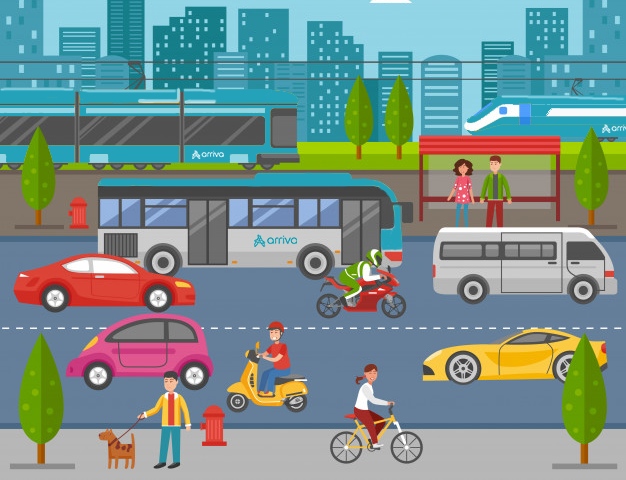09 Jun 2021
Arriva Blog: The hidden contribution of public transport to our society - so much more than buses and trains.

Angelo Costa, Managing Director of Arriva Italy.
The pandemic forced all countries across Europe to impose lockdowns and to ask their citizens to limit their movements as much as possible with significant consequences for public transport. Suddenly, buses and trains were almost empty, transporting a maximum of 10% of normal passenger levels at the height of the pandemic.
This has come with a loss of revenue for the industry which, for 2020, UITP estimated to be at around €40 billion.
Yet, the societal value of public transport has never been more apparent than during the Covid crisis. The pandemic reminded us that societies cease to function effectively if public transport is unavailable. Citizens can no longer easily access a hospital or a supermarket or go to work. Without readily available public transport services, citizens lose the ability to easily move across as well as to and from cities. Those who can afford to, will be able to remain connected through private transport[1]. However, where services are limited, the ones who will suffer are particularly those groups which rely on public transport more: students, the unemployed, or pensioners but also our “essential workers”, who are often on lower incomes but saved lives during the pandemic, ensured that our supermarkets were stocked, and our orders were shipped and delivered.
Currently, passenger numbers are only rising slowly. There are several reasons for this, including an expected increase in working from home but also the loss of trust in the safety of public transport following advice from some governments not to travel. These changes have led commentators to question the future of public transport. In a period of budgetary constraints, one can easily imagine that one simple way of cutting costs would be to cut public transport which suddenly seems “unsuccessful” due to lower passenger numbers.
However, that would be disastrous. It would particularly hit those who “have no choice” when it comes to mobility. It would mean that those who have kept our society functioning during the pandemic would no longer be able to access their workplace, and the “car-less” would no longer be able to easily access schools, health services, supermarkets, nor be able to easily meet their family and friends with the consequence of an increase in poverty, loneliness, and social exclusion[2].
To avoid creating such a devastating reality, governments and regional and local authorities must remember the crucial role public transport has played during the pandemic, which only made visible what was always there: essential services that link people and communities. Whether for work, leisure or other essential journeys, millions of passengers have and will continue to depend on reliable public transport services.
Access to public transport reduces inequality and unemployment and links people to better paid jobs[3]. Investment in the sector is critical to connectivity, making opportunities accessible to everyone by facilitating access to education, employment, and essential services. Public transport benefits everyone, regardless of their personal economic circumstances and should be seen as an essential utility in a society that provides equal opportunities to all and that values sustainability.
As EU governments are implementing their national recovery plans, supported by EU funding, there is a real possibility to strengthen a sector that will contribute to Europe’s recovery and help create a fairer society with equal access to opportunities, be it education, work, or leisure.
So, let’s look beyond passenger numbers and instead consider the societal value of public transport as we look to create an accessible and connected world for all, regardless of their circumstances.
[1] Can Public Transit Survive the Pandemic? London's New Transport Commissioner Wants You to Believe It Can; TIME (2020)
[2] Transport and inequality, Department for Transport (2019)
[3] Transport and inequality, Department for Transport (2019)
